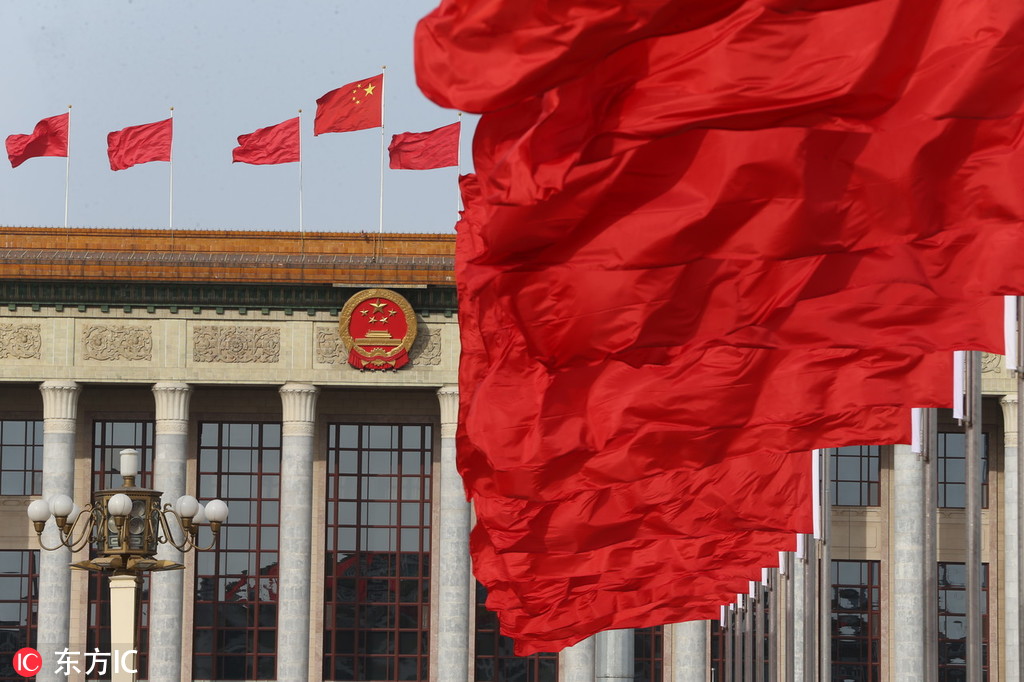How to modernize national governance
By Wang Xiaoguang/Liu Ying | China Daily | Updated: 2019-11-05 07:18

The Fourth Plenary Session of the 19th Communist Party of China Central Committee, which concluded last week, summarized 13 advantages that China's national governance system enjoys, and proposed 13"insists and improves", laying down the timetable and road map for the modernization of the national governance system and governance capability. Specifically, three points should be underlined to implement the decision of the Fourth Plenary Session.
First, the concept of national governance should be modernized, as development ideas determine actions, and the pioneering role of ideas should be given full play in order to improve the national governance system and governance capability. The ideas of comprehensively promoting law-based governance, people-centered governance, scientific governance, comprehensive governance and putting equal emphasis on innovation, and reducing risks should be integrated into the process of modernizing the national governance system and governance capability.
Second, the modernization of the national governance mechanism should be expedited in accordance with the principles of socialism with Chinese characteristics. And the key to improve governance capability lies in adhering to the Party's leadership. CPC Central Committee General Secretary Xi Jinping's status as the core of the Party, as well as the authority and centralized, unified leadership of the CPC Central Committee should be firmly safeguarded to improve the mechanisms for the Party's leadership in major initiatives, and the institutional advantage of accomplishing major tasks fully leveraged.
Besides, the reform of the Party and government organs should be deepened to maintain the comprehensive and coordinated leadership of the Party. An efficient legal system should be built, during which legal authority should be valued, fairness and justice upheld, judiciary reform must be deepened and the rule of law promoted. Also, the national governance system should be constantly improved, for instance, by transforming and standardizing the government functions and governance procedures.
There is also a need to build a governance system that stresses clear-cut and law-based responsibilities. As far as the economy is concerned, the relationship between the market and the government should be made clearer, with the government more vigorously promoting high-quality development and building a modern economic system. The government should also strengthen its role in transforming the economy, supervising the market and society, providing public services, and protecting the environment and ecology, so as to promote good governance.
While the construction of a social governance model based on collaboration, participation and common interests should be accelerated, social governance must be made law-based, smart and professional. And social forces and resources, along with the government, should work under the guiding principle that the Party leads, the government shoulders responsibilities, society collaborates, the public participates, and the law protects.
Moreover, the capability of foreseeing, preventing and resolving social contradictions and the three-dimensional security network should be improved to ensure orderly social development and promote social governance. To strengthen and improve the mechanism that promotes the leading role of the Party in improving grassroots-level governance is the key to build an extensive and solid community-level governance system. It is also important to improve social governance construction by using Internet Plus in order to build a community-level governance system that combines autonomy, rule of law and rule of virtue.
Third, the national governance system should be modernized with the help of innovation and by making full use of modern technologies, while democratic governance methods have to be put into practice. Among which the most essential for fully leveraging democracy are improving the people's congress mechanism, the Party-led multi-party cooperation and political consultation system, regional ethnic autonomy system, and the community level self-governance system, consolidating and developing an extensive patriotic front, and improving the socialist consultative mechanism.
Furthermore, cultural governance methods with Chinese characteristics should be used to improve governance by, for example, building a cultural public service system and cultural supervision system, while technological governance means must be made full use of, so as to ensure scientific innovation promotes the modernization of the national governance system and governance capability, reduces governance costs and makes governance more efficient.
The use of technology in national governance could guarantee more accurate monitoring and evaluation of the governance system, and improve risk predictability in national governance, as high-tech including big data and blockchain could significantly improve public service and governance.
And the barriers impeding data flow and data sharing should be removed, public data platform opened to the public, and personal information better protected.
Wang Xiaoguang is deputy director of and a professor at the Department of Economics, Party School of the Central Committee of CPC, and Liu Ying is a PhD at the Graduate School of Party School of the Central Committee of CPC. The views don't necessarily represent those of China Daily.
























